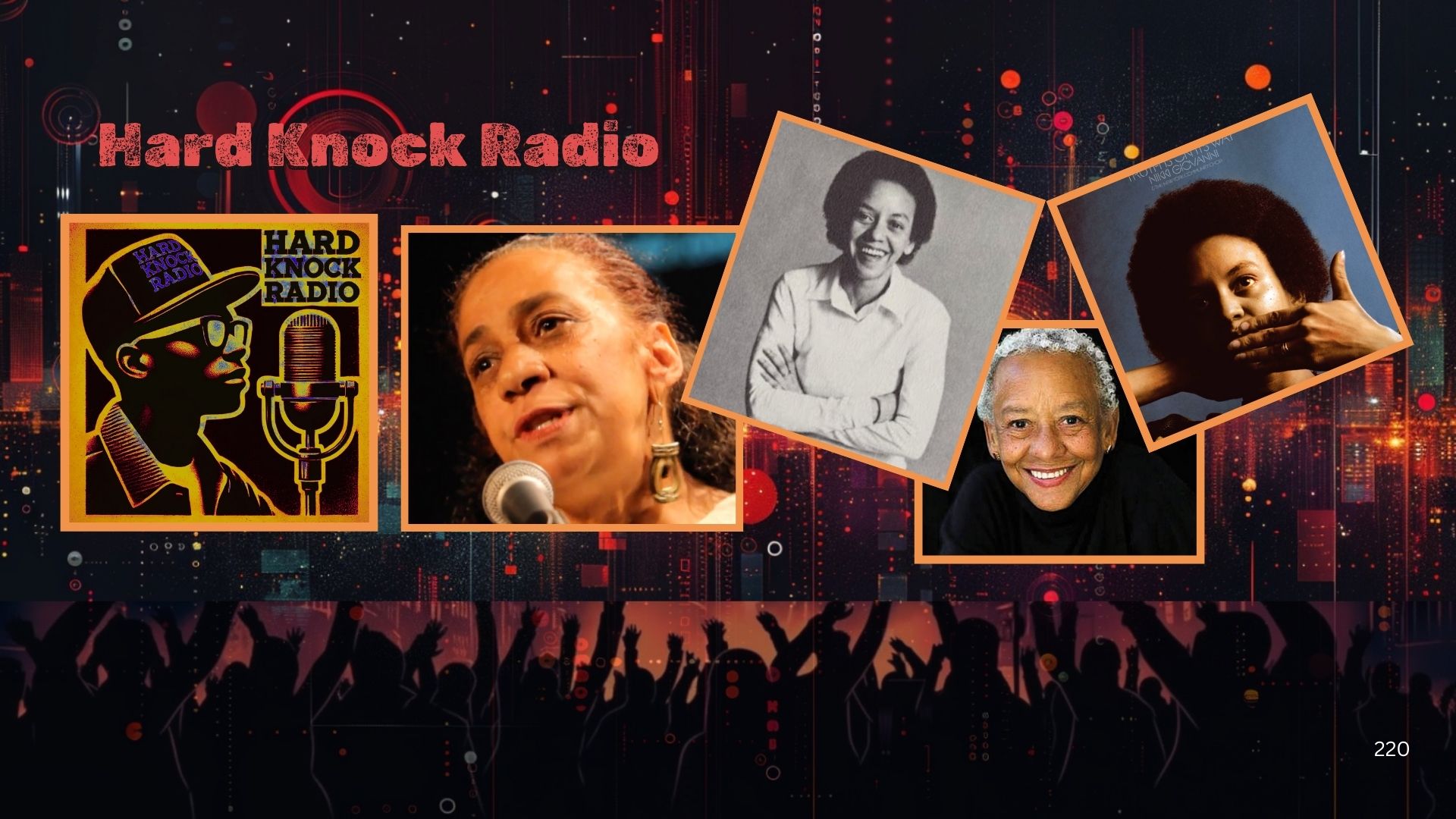(HKR-12-11-24) In a recent conversation on Hard Knock Radio, host Davey D sat down with Devorah Major, San Francisco’s Poet Laureate, to reflect on the influence of iconic poets like Nikki Giovanni. Major, a celebrated poet and author herself, discussed her personal journey as a writer, the impact of Giovanni’s work, and the broader legacy of the Black Arts Movement.
Nikki Giovanni’s Influence on Devorah Major
Major was first inspired to write poetry in the early 1970s. Nikki Giovanni and Sonia Sanchez, key figures in the Black Arts Movement, influenced her. Giovanni’s poem Ego Tripping had a profound impact on Major. It sparked something within her, urging her to write from her heart and soul. Giovanni’s fearless expression of truth was a turning point for Major. She was deeply moved by the poem’s celebration of African heritage and identity.
Major recalled how Giovanni’s work sparked pride in her roots. It helped her embrace her African ancestry, at a time when mainstream narratives often ignored it. Giovanni’s influence went beyond poetry. Major noted that Giovanni’s fearless expression of self shaped her approach to both poetry and activism.
The Evolution of Giovanni’s Poetry
Giovanni’s early works were revolutionary and political. Major noted that her later works, especially in the 1990s and beyond, became more self-reflective. Her poetry softened in tone, but Giovanni remained a vocal advocate for social justice. She continued to inspire through speeches, essays, and children’s books. Major pointed out that while Giovanni’s poetry became gentler, her voice stayed powerful. It always focused on truth-telling, even as it evolved with the times.
Black Arts Movement: A Defining Moment in Poetry
The conversation also delved into the broader context of the Black Arts Movement, with Major recalling her experiences of growing up in San Francisco and being exposed to poets like Baraka and Sonia Sanchez. Major’s connection to the movement was more that of a “younger sister,” learning from and being inspired by the generation before her. Her own involvement with the Black Arts Movement and its ideals helped shape her writing, as she strived to use her poetry to speak truth to power.
For Major, the Black Arts Movement wasn’t just about writing poetry—it was about a sense of cultural responsibility, using language as a tool for revolution and change. This ethos, embedded in Major’s own work, continues to resonate today, inspiring young poets to find their voices and write with intention.
Speaking Your Truth: Major’s Advice for Young Poets
As a mentor to many aspiring poets, Major emphasized the importance of “speaking your own truth.” While she acknowledged that this concept has become somewhat of a cliché, she stressed that it is vital for young poets to write authentically and with integrity. She encouraged them to look at the world through a critical lens and express what they see, as Nikki Giovanni did in her work. However, Major also reminded poets to be mindful of how they express their truths, advising them not to hurt others in the process.
She explained that Giovanni’s poetry was not just about being brash or outspoken but about speaking with purpose. For Major, poetry is not about tearing others down but about uplifting your own story and the stories of those who may not have a voice.
The Influence of Giovanni’s Legacy
Devorah Major’s tribute to Nikki Giovanni extended beyond poetry. Giovanni’s ability to wear multiple hats as a poet, activist, and public intellectual was something Major deeply admired. Giovanni’s career showed that one could be versatile in their craft while staying true to their core values. Major herself embodies this lesson through her multifaceted approach to writing, teaching, and performing, always striving to honor those who came before her while blazing her own trail.
Conclusion
In closing, Devorah Major expressed deep admiration for Nikki Giovanni’s legacy, encouraging listeners to explore her early works, such as Cotton Candy on the Mirror, and to pay attention to the depth and courage of her poetry. Giovanni, according to Major, lived a full life—one that was unapologetic, rich with history, and deeply committed to truth-telling. Her example serves as a beacon for new generations of poets, proving that poetry can be a tool for transformation and empowerment.
As Major continues to write and perform, her work remains a testament to the enduring power of poetry, rooted in the tradition of the Black Arts Movement but continually evolving to meet the challenges of the present. To learn more about Major’s work and upcoming performances, visit her website at devorahmajor.com.


Leave a Reply